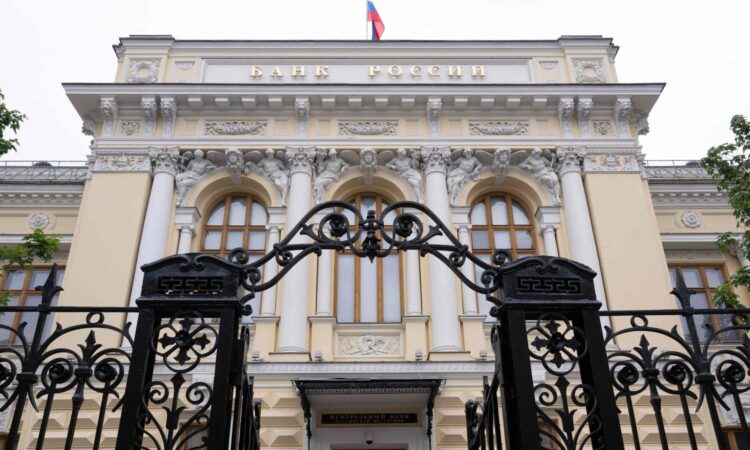
Russia halted trading in U.S. dollars, the euro and Hong Kong dollars on the country’s flagship stock exchange Thursday after the U.S. imposed fresh sanctions aimed at further tightening the screws on Moscow’s war machine.
Russia halted trading in U.S. dollars, the euro and Hong Kong dollars on the country’s flagship stock exchange Thursday after the U.S. imposed fresh sanctions aimed at further tightening the screws on Moscow’s war machine.
The Bank of Russia said trading sessions in the foreign-exchange, precious metals and derivative markets of the Moscow Stock Exchange with settlements in those currencies had been suspended due to U.S. sanctions. However, currency trading will continue in the over-the-counter market—when two parties engage directly without supervision from an exchange.
Premium benefits
35+ Premium articles every day
Specially curated Newsletters every day
Access to 15+ Print edition articles every day
Subscriber only webinar by specialist journalists
E Paper, Archives, select The Wall Street Journal & The Economist articles
Access to Subscriber only specials : Infographics I Podcasts
Unlock 35+ well researched
premium articles every day
Access to global insights with
100+ exclusive articles from
international publications
5+ subscriber only newsletters
specially curated by the experts
Free access to e-paper and
WhatsApp updates
The Bank of Russia said trading sessions in the foreign-exchange, precious metals and derivative markets of the Moscow Stock Exchange with settlements in those currencies had been suspended due to U.S. sanctions. However, currency trading will continue in the over-the-counter market—when two parties engage directly without supervision from an exchange.
The U.S. Treasury sanctioned the Moscow exchange and Russia’s central securities depository that provides bank account services, registration of over-the-counter trades, and liquidity management services.
“We are increasing the risk for financial institutions dealing with Russia’s war economy and eliminating paths for evasion, and diminishing Russia’s ability to benefit from access to foreign technology, equipment, software, and IT services,” Treasury Secretary Janet Yellen said in a statement.
Russia’s central bank said people could still buy and sell the currencies through Russian banks and that deposits remained secure. Kremlin spokesman Dmitry Peskov said in comments carried by Russian state news agency TASS that the central bank is able to ensure stability in all markets.
The Biden administration on Wednesday set out sanctions on more than 300 entities and individuals in an effort to disrupt the networks with third countries through which Russia can procure technology and equipment for its war in Ukraine, singling out China.
Beijing has officially maintained a neutral stance over the Ukraine war, but it remains an economic lifeline for Russia, deepening trade ties that have helped Russian President Vladimir Putin stabilize his economy despite Western sanctions.
The State Department said the latest measures target seven China-based entities that have supplied goods aiding Russia’s war in Ukraine, Belarus-based entities and others based in the U.A.E, Turkey, Kyrgyzstan, Moldova and Singapore that have supplied dual-use goods to Moscow.
Earlier this year, The Wall Street Journal reported that drones and U.S.-made computer chips were increasingly flowing to Russia from China through Central Asian trade routes snaking through former Soviet republics like Kyrgyzstan.
Washington also sanctioned companies involved in Russia’s energy projects, the metals and mining industry as well as producers of Russian weapons systems and military components.
“Today’s actions strike at their remaining avenues for international materials and equipment, including their reliance on critical supplies from third countries,” Yellen said.
Write to Mauro Orru at [email protected]






